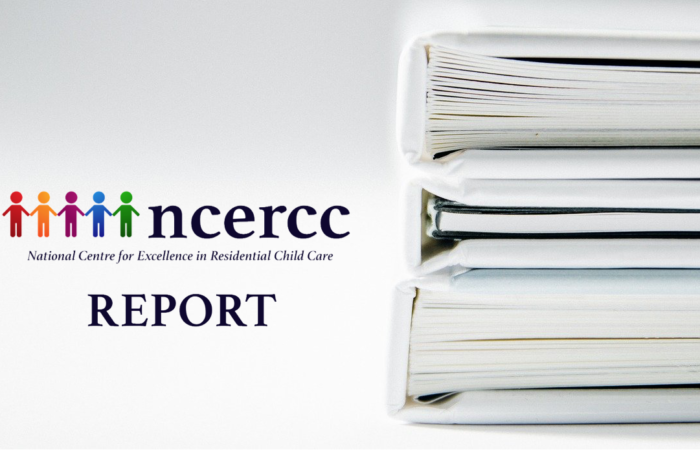
Care Review absence of critique has brought collaboration not consensus (+ Power Point download)
There has been no opportunity for consideration of the Care Review proposals.
Closely managed communication and crafted responses have been the hallmark of the Care Review. There is an absence of consensus that was possible from the enabling of dialogue, meaningful debate, critique, contestation involving the social work/care sector. Today there is a generalised, but not universal, willingness to collaborate with the proposals of the Care Review.
At the onset of the Care Review NCERCC observed in a CYPN blog, “If we don’t make known what is in our minds, then our minds will be made up for us as decisions are taken without ‘us’… We have the authority to be proactive, this stems from the care review being about us, who we are and what we do…. If the care review is announced, then those in care and working with and for care may only react in our thinking; if this is the case then it’s already too late. It could be a case of making something less bad perhaps, rather than making it good from the start”.
Now, even that pessimistic view seems unattainable. Not only has the process and form of the review been the purview of a select few but its implementation appears destined to follow an identical pattern.
Scottish Care Review ‘like no other’: English Care Review is no sister or brother
The distinct differences between the English and Scottish Care Reviews we have yet to have the opportunity to discuss. The Scottish review places love at the centre of care; the English places ‘relationships’ – is that the same or different? It is difficult to discern the meaning of the term ‘relationships’. Is this the foreshadowing of further changes to the definition of social work/care?
Distinct differences between the Narey review and the Care Review.
The conclusions of Narey were practical and achievable. The Care Review considers a fragment of what is Residential Child Care and from an unerring negative stance.
How is it that the Care Review is leading us into a 75th year of the same discussion?
The 1948 Act was the start of Residential Child Care not being seen as a place for the upbringing of young people but solely as an intervention. The focus was to reduce/totally remove the potential for young people to become ‘taken into care’ by removing the causes and thus actions by children’s services. Research consistently shows disadvantage and deprivation continue. We need to understand how scarcity and rationing are constructed. The Care Review is apolitical and ahistorical in the portrayal of children and their care. There is a high demand for residential resources. High level complex needs require an equivalent response. We need opportunity to discuss the Care Review inclination towards the resilience of the ordinary family in all circumstances to provide the required structures for deprived young people. A small well-supported residential home, ‘primary home provision’, can provide a suitable ‘facilitating environment’ for young people.
These splits need to be resolved but the Care Review exposes and exacerbates them. NCERCC addresses this matter in its document Reconsidering family and group care: contributing to the Care Review also being a Cultural review – NCERCC
No definition of Care in the Care Review
Care is a threshold concept, a central idea that ‘transforms learning and practice’ and leads to ‘new ways of thinking and understanding.’ Steckley Threshold concepts in residential child care: part 1, the selves of learners and their praxis – Strathprints
In the absence of the Care Review maybe it is the sector that has to make its own start? Tronto describes care as ‘a practice rather than a set of rules of principles …It involves both particular acts of caring and a ‘general habit of mind’ to care that should inform all aspects of a practitioner’s life (1994 0126-7), and bringing: attentiveness, responsibility, competence, responsiveness, to ‘caring for’, hands-on care; ‘caring about’, our emotional investment in and attachment to others; ‘caring with’, how we act together to transform our world.
No recognition in the Care Review that care is the core of our profession
There is not the recognition in the Care Review that care is the core of our profession as well articulated by Austin and Halpin in 1989, ‘… children grow through being cared for and, in turn, caring. If children are not cared for, there is evidence that they cannot care for others…. Children in care need care. It is for this reason that care is the core of our profession, and this should not be forgotten’.
This is a devastating critique of any manualisation of programmatic care.
It is also a devastating critique of the proposals for unregulated settings, divorcing care from support.
Caring only becomes meaningful when it is personal. Care (if) “… emptied of its potential (becomes) a dried-up expression for how to manage an underclass of disadvantage”. (Cameron 2003 p91-2)
Care Review brings a worrying degree of liberalisation and localisation as well as a greater control and centralisation.
We are witnessing a centralisation of influence such as the sector has never previously encountered.
The Care Review is an example not of deregulating but reregulating.
Combine the pieces
- 3 new national bodies and a National Children’s Social Care Framework which will “set the objectives, goals and values and guide underpinning practice for all those delivering children’s social care, accompanied by a balanced scorecard to measure success”.
- Josh MacAllister continuing with the implementation and subsequently now centrally involved with the What Works in Children’s Social Care Centre and SCIE.
Care Review: an existential threat to Residential Child Care?
Ofsted ‘research’ is quoted as finding 1/3rd of children in children’s homes had fostering on their care plan but no fostering places available. ( Why do children go into children’s homes? – GOV.UK (www.gov.uk) Add to this the numbers in unregulated or what is now assigned as ‘semi-independent.’
The financial savings foreseen by the Care Review appear to be equivalent to the loss of 1/3rd of Residential Child Care
Is this what Isabelle Trowler meant when speaking on BBC R4 World at One 23 05 22 (World at One – 23/05/2022 – BBC Sounds ), “What the review is saying is that there is too many children trapped in residential care at very high cost and money could be used so much more effectively if we bring it out of that part of the system”.
These words need also to be seen in the light of the Children’s Commissioner review of the family (August 2022) observing children’s homes as “Institutions”.
Rightsizing of Residential Child Care by Specificity not Sufficiency
There is no discussion of the Rightsizing of Residential Child Care which is possible through:
- collating all the diverse needs of all the children who are living in Residential Child Care and who need to
- collating the diverse provision that is Residential Child Care (all the types of children’s homes, residential special schools, Tier 4, etc), and its close associates such as intensive foster care, and the growing number of unregulated crisis or semi-independent settings.
This brings Specificity (needs) not Sufficiency (numbers) by analysing ‘what works for whom’ not ‘what works’.
Residential Child Care registering as Social Work is a retrograde act of colonisation
The subsuming by the Care Review of Residential Child Care into social work is a retrograde step. It is an act of colonisation, it wipes away the rich tradition of Residential Child Care knowledge, theory, and practice. Residential Child Care is not social work, each has a distinct roles and tasks in the life of a child.
Residential Child Care is a profession with its own identity, the Care Review is not ambitious.
Where is the ambition to build on the experience of such countries as Denmark, Germany and the Netherlands and their requirement of a graduate workforce alongside the vocational?
This ambition takes us further, if we consider the possibility of a workforce melding graduate and vocational intake then we must recognise the value of that workforce.
Care Review – not a word on the low pay of Residential Child Care workers.
The first act of the Care Review was to place the focus on private providers and outside of the DfE through involvement of the CMA.
There was not a parallel action to refer the sector to the Low Pay Commission though low pay is known as a significant deterrent to recruitment in Residential Child Care.
NCERCC’s view is that a national pay scale and the same terms and conditions is needed for all RCCWs in all types of ownerships.
It could be enacted through LAs adopting Good Work plan as Best Value in procurement. The Good Work plan is a Government strategy set to reform employment law, with focus on the following key themes: Fair and decent work; Clarity for employers and workers; and Fairer enforcement.
Care review idea of Regional Care Cooperatives does not address the current conjuncture.
The Care Review presents no analysis of the factors involved with current trajectory of Cannibal (Corporate) Care
- Aggregation = sizing up (both LAs and providers)
- Appropriation (meaning acquisition or LA combination) – territorial gain (both LAs/providers)
- Acceleration (acquisitions are speeding up). ‘Time compression’ is observable e.g. diminishing length of placements, programmatic time-limited approaches to placements, the ‘performative’ expectation of being quicker, leaner.
- Activation – a misplaced expectation that all homes/providers can do everything is returning. Each home a specialism with admissions that match is the effective and efficient use of residential resources.
The Care Review could have charted the development of Relational Commissioning with a different ethic, different focus, different practice, different outcome.
Regional Care Cooperatives are not an intervention in the current process of destabilisation, dysfunction and domination.
Throughout there a questions, questions, questions. And no means to discuss.
Here’s some, and there are many more
- It does not counter the last resort use of Residential Child Care (RCC).
- It does not introduce meaningful assessment to ensure the right placement first time.
- It does not address right place at the right time for the right child.
- It does not remedy the serial and hierarchical use of RCC.
- It does not address the attribution made by and contribution of others in the outcomes from RCC. In the Case for Change there was recognition that the outcomes from RCC were affected by factors ‘upstream.’ Why is this absent in the final report?
- It does not make clear that the role and task of RCC is determined by the system in which operates. You get positive RCC in positive children’s services.
- It does not make clear that what happens in RCC is a correlation of factors before and outside of RCC that it has to try to address. Magic and miracles are not addressed nor is the ‘impossible task’ of a child arriving after many years and likely possibly multiple placements when placement earlier would have had better outcomes.
The Care Review is failing to provide Resilience for Residential Child Care
Furthering the thinking
Ten tests for the Care Review.
Read them (and more) the end of this recent conference Power Point – DOWNLOAD HERE


